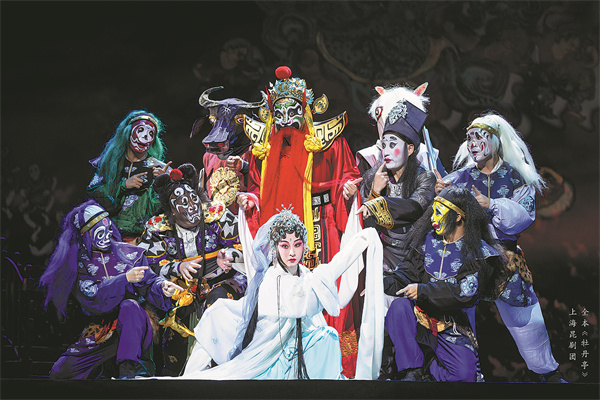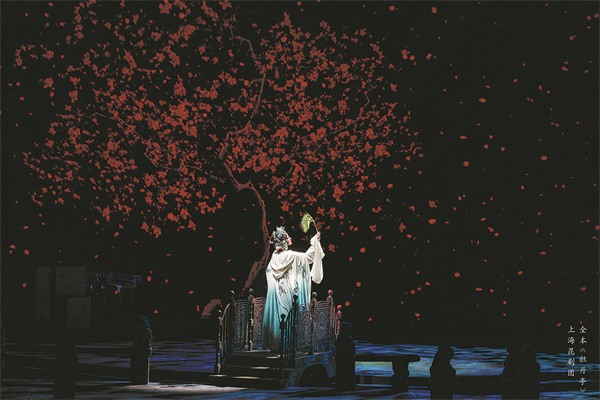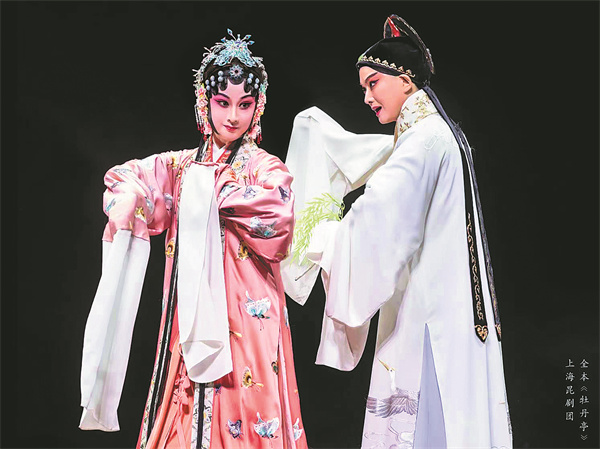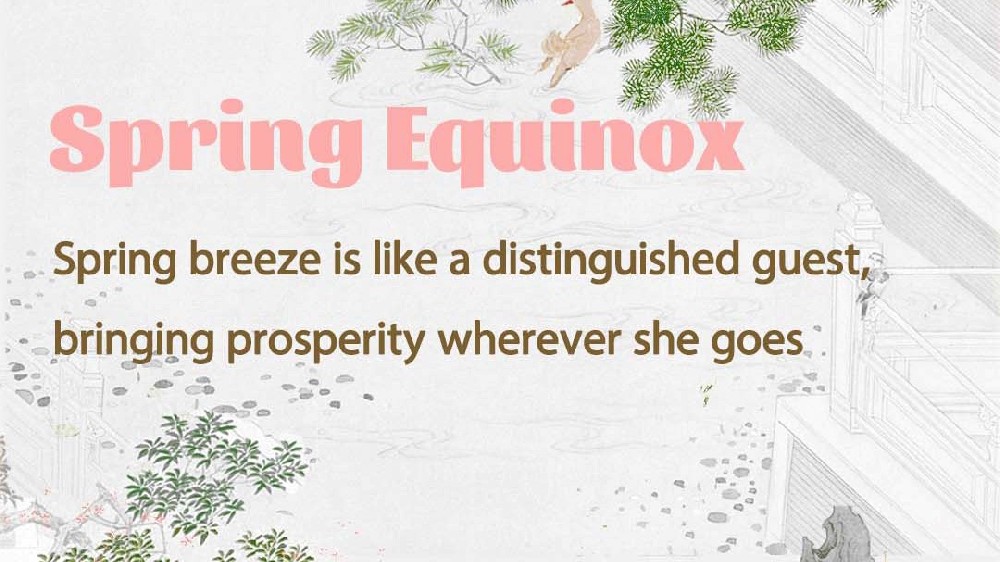Classic play gets act together
One of the most-performed Kunqu Opera plays by Ming Dynasty (1368-1644) playwright Tang Xianzu is The Peony Pavilion. Some of its most famous acts, such as Walking in the Garden and The Dream Interrupted, are frequently staged by Kunqu Opera troupes in China because of their beautiful singing, poetic lyrics and graceful dances, which lend them popular appeal to audiences of many ages.
Traditionally, the play is shown only in parts due to its long length, but last year, the Shanghai Kunqu Opera Troupe staged all 55 acts of the play in an eight-hour, three-part marathon. This full-length version of The Peony Pavilion has been touring around the country ever since, with 12 performances in 18 days.
From March 8 to 10, it was staged at the China National Opera House in Beijing, the first time the total 55-act performance was given in the capital.
"It's a once-in-a-lifetime opportunity for Kunqu Opera performers to perform all the 55 acts of the classic work. It's also a once-in-a-lifetime experience for the audience to watch The Peony Pavilion in its near-entirety," says director Guo Xiaonan.
According to Guo, who rearranged Tang's script based on an adaptation by the late playwright Wang Renjie, the original plan was to stage the eight-hour-long production in one day, but the company decided to present it on three consecutive nights.
"A total of 55 acts allow the audience to develop a full understanding of The Peony Pavilion and what Tang was trying to express," says Guo.

He also points to the play's historical value. "Besides the romance between Du Liniang and Liu Mengmei, there is detailed information in the work reflecting the culture, society, religion, costumes and other aspects of life during the Ming Dynasty," he says.
The staging of the production appeals to a contemporary audience as well as enthusiasts of history. The set is a large, revolving turntable displaying different acts on all four sides, which allows for viewers to experience the story out of order.
The Peony Pavilion is about Du, a beautiful young woman, who falls in love with Liu, a handsome scholar, whom she meets in a dream. She wakes up and finds that her longing for this man is so strong that it gradually causes her to fall ill and die. After her death, she persuades a judge in the underworld to grant her permission to return as a ghost to find him. She eventually finds the man, who is staying at the temple where she is buried. They have a passionate love affair and wish to marry. When he opens Du's coffin, his love for her is so powerful that it brings her back to life, and they live happily ever after.
"I have read the script over and over again. I wrote notes on it and my notes are over 50,000 words long," says Guo.
There are more than 300 types of traditional Chinese operas, which are still performed in the country.
Guo has directed plays in over 50 of the types, including Peking Opera, Yuju and Lyuju operas.

"This 55-act production of The Peony Pavilion is a precious opportunity and an ultimate dream for me," Guo says.
Inscribed in the Representative List of the Intangible Cultural Heritage of Humanity by UNESCO, Kunqu Opera, one of the oldest traditional Chinese operas, has a history of over 600 years and originated in Kunshan, East China's Jiangsu province. With a combination of singing, dancing and acting, as well as the accompaniment of a live band, it is performed in the melodic Suzhou dialect.
In 1999, Guo directed a 35-act version of The Peony Pavilion, working with established Kunqu Opera performers of the Shanghai Kunqu Opera Troupe, such as Cai Zhengren, Yue Meiti and Zhang Jingxian.
For the latest version, Guo worked with the younger generation of the company's Kunqu Opera performers — all are in their 20s and 30s.
"For Kunqu Opera performers, The Peony Pavilion is a required course of study," says Luo Chenxue, who plays the role of Du. "I've played the role of Du since I started to learn Kunqu Opera as a child, but I had never performed all 55 acts, which was challenging and eye-opening.
"This new production not only portrays Du as a beautiful woman, who desires love and freedom, but also as a person of strength, who is persistent and fights for love.
"After she returns to life, she faces judgment from society and even her own family. She shows considerable bravery in the face of this. These aspects of her character are rarely seen by audiences because the parts are rarely staged," Luo says.

Hu Weilu plays the role of Liu. As a female Kunqu Opera performer, Hu received training in taking on young male roles.
According to Guo, such cross-gender performances have a long tradition in the Shanghai Kunqu Opera Troupe, which has a history of 45 years.
"Cross-gender performances display a unique aesthetic of traditional Chinese operas," Guo says.
In the past, most traditional opera performers were male, so the practice of cross-gender performance was common, as some had to perform female roles.
In modern times, the tradition of cross-gender performances has remained, now moving in both directions.
"It's a bold move to let this young actress, Hu, play the leading role of the male protagonist in the 55 acts of The Peony Pavilion," says Guo.
Hu rehearsed for eight months in Shanghai last year with the rest of the team to prepare for the role. "I am a naturally quiet and reserved person, but in these acts, I had to open up myself for many scenes, for example in the sections where Liu shows his passionate love for Du," she says.
The company has staged more than 10 versions of The Peony Pavilion, according to Gu Haohao, director of the company. "Those versions trained and inspired many young Kunqu Opera performers, as well as building up a large fan base for the ancient art form," Gu says.
"The 55-act version of The Peony Pavilion is the result of multiple contributions from many of the company's artists, young and old, who brought this classic work alive."
After its Beijing stop, the production will be staged in other Chinese cities, such as Zhengzhou, Henan province, and Weifang, Shandong province.

